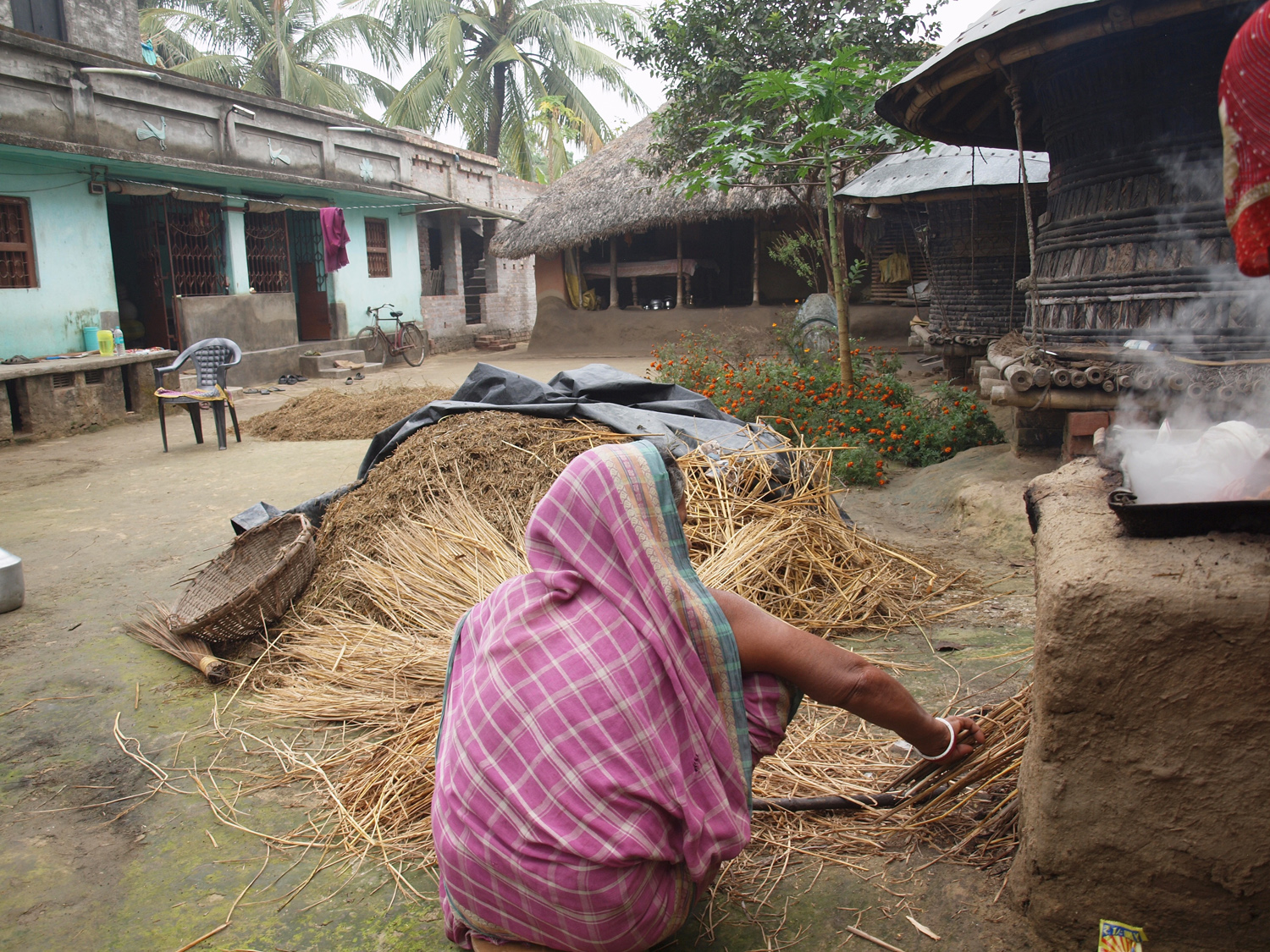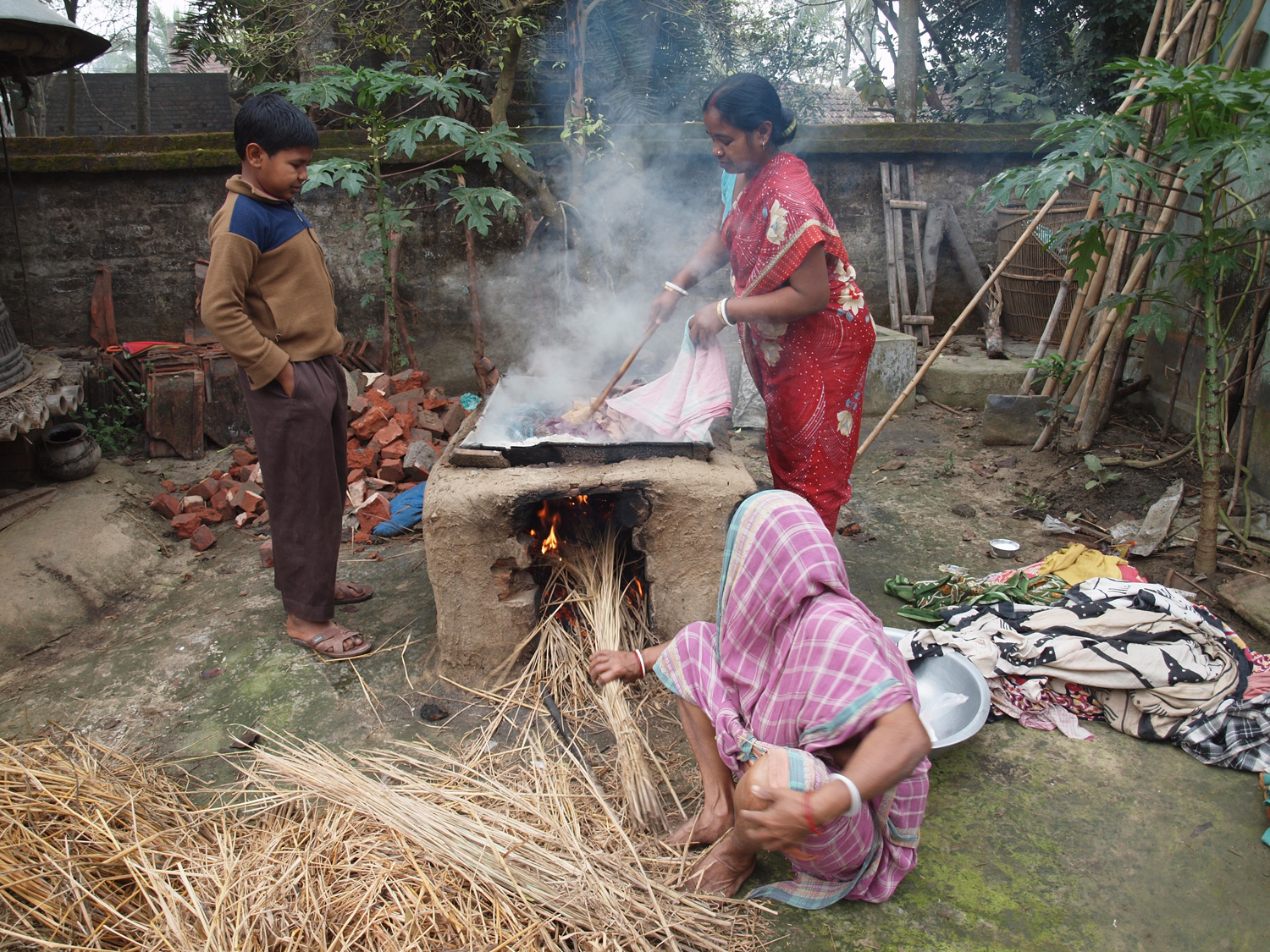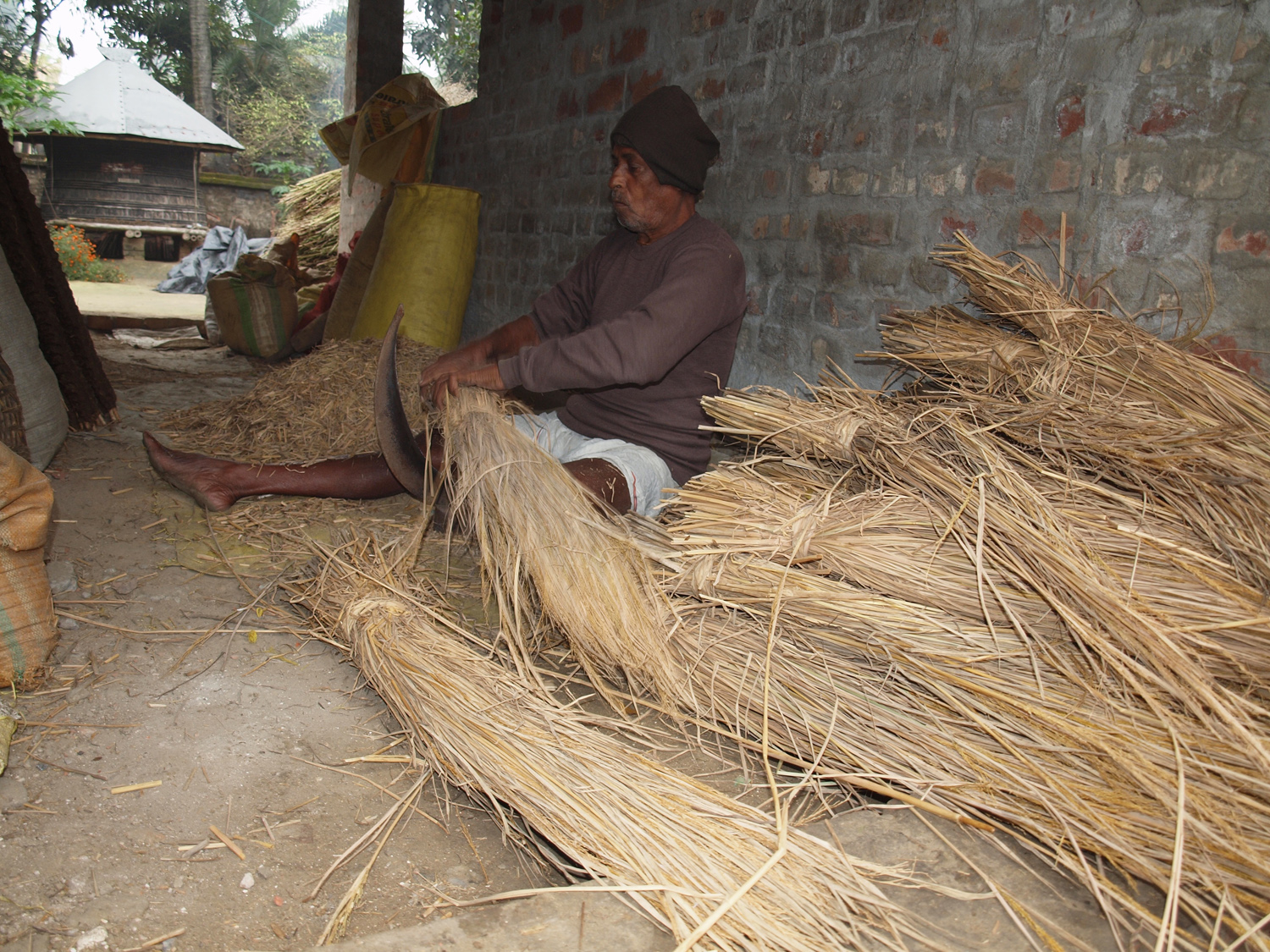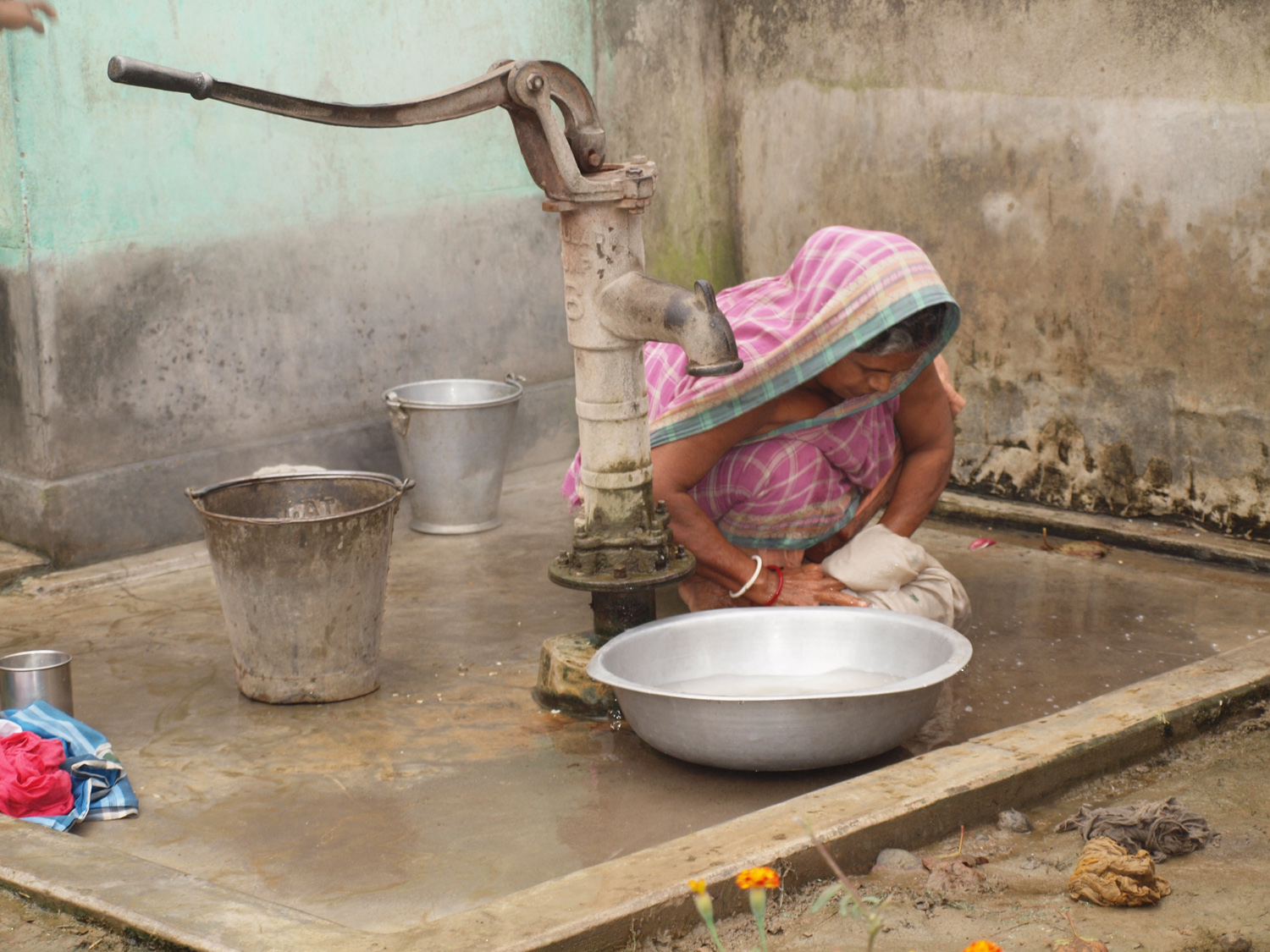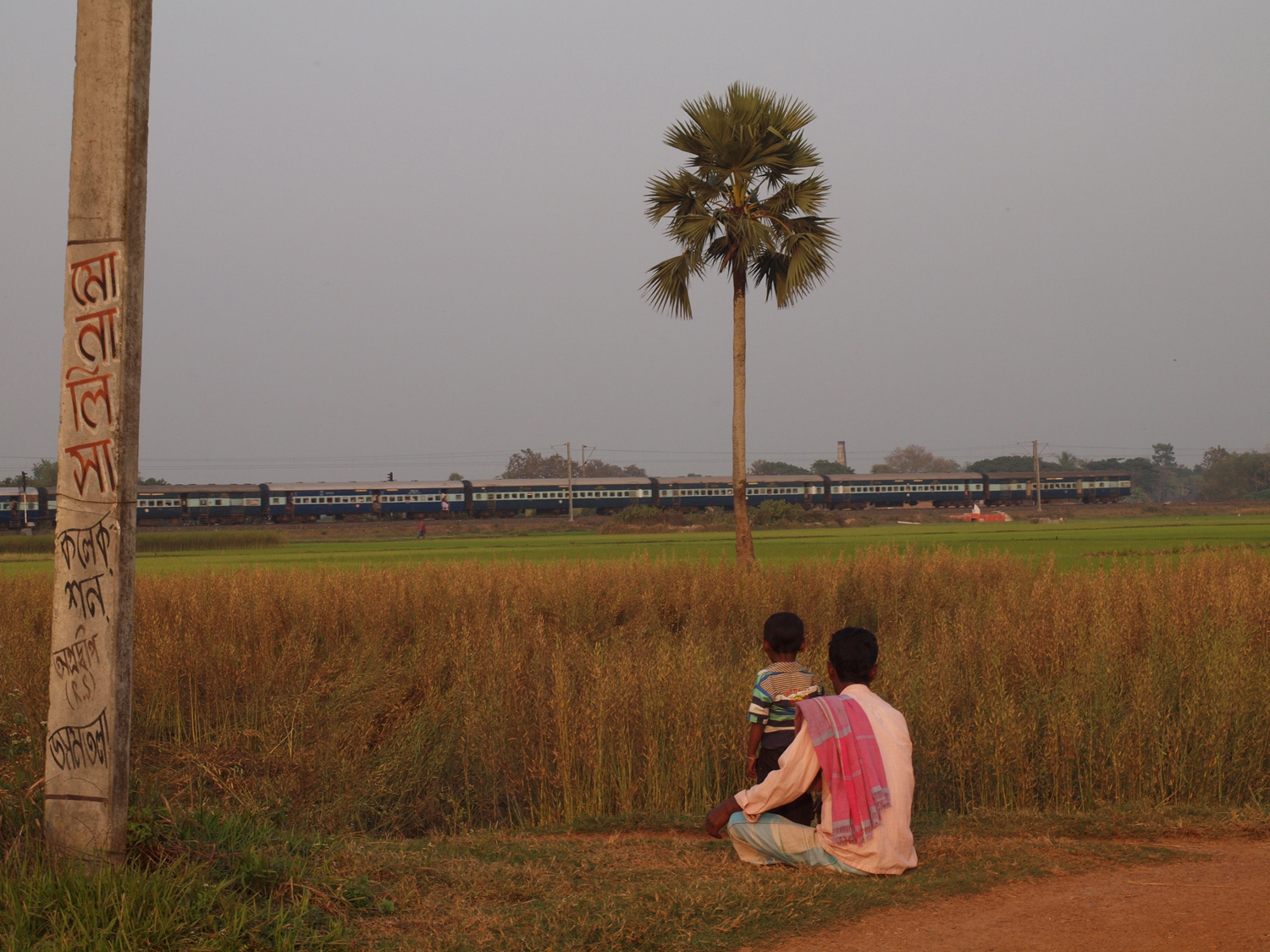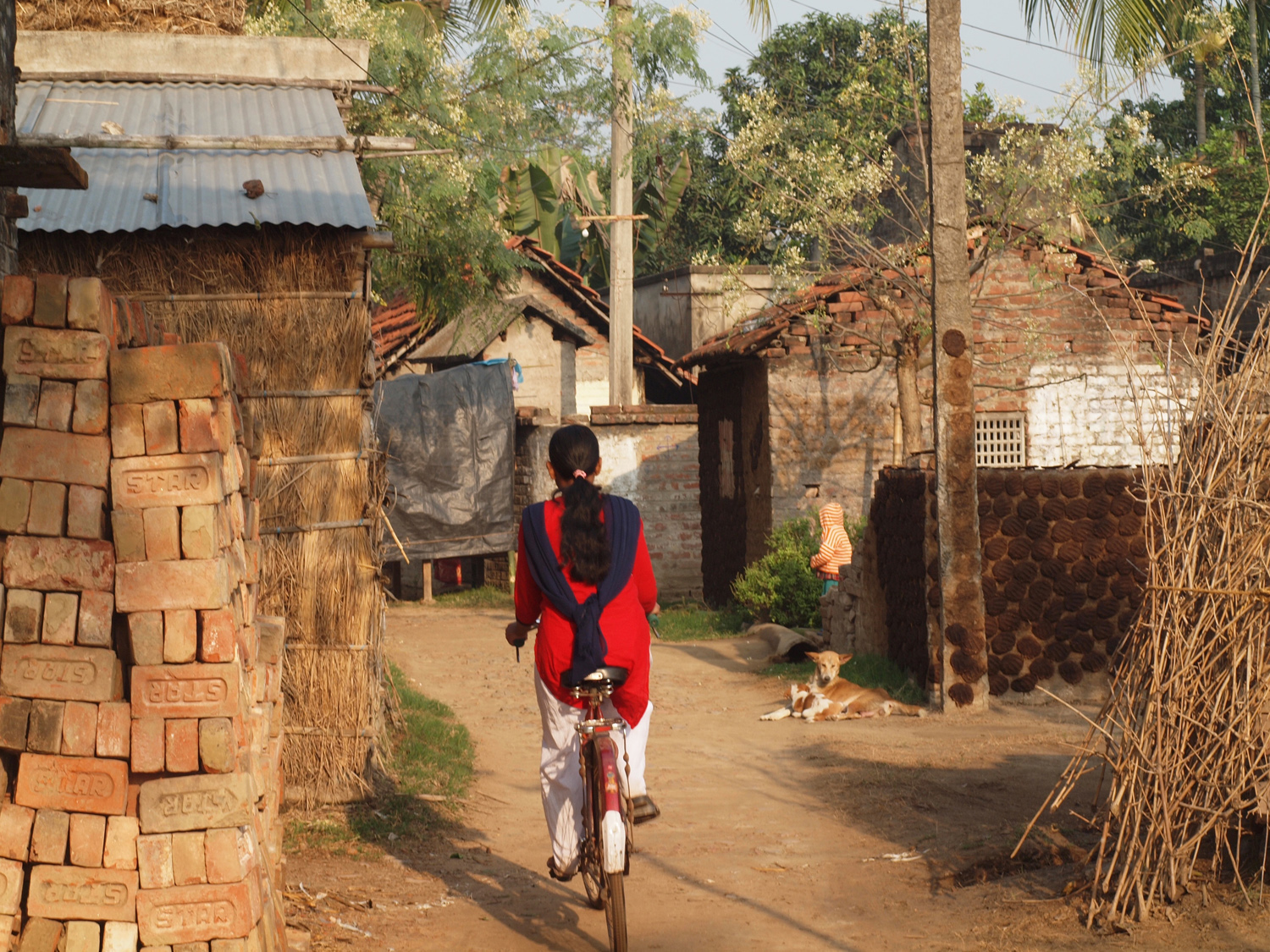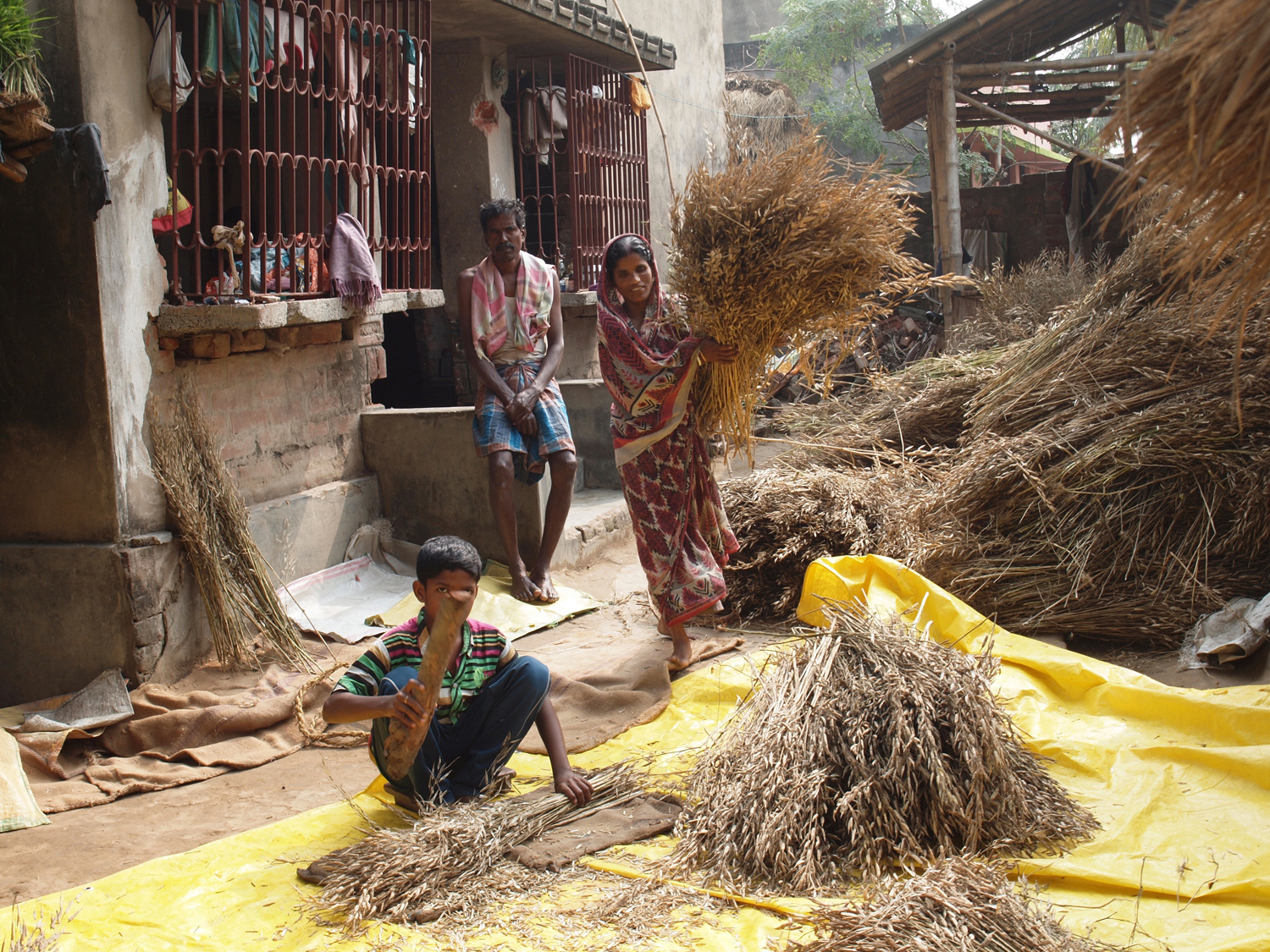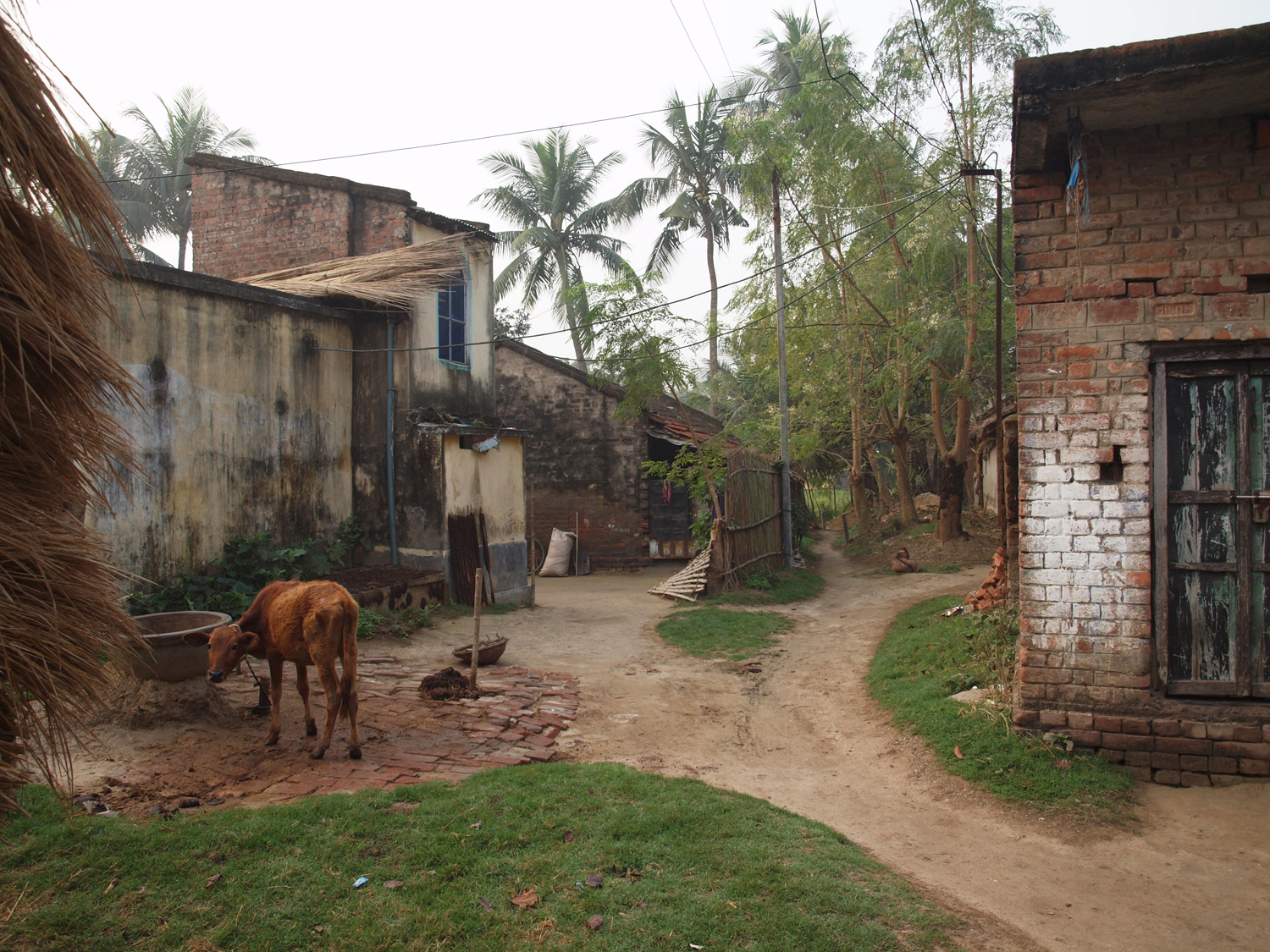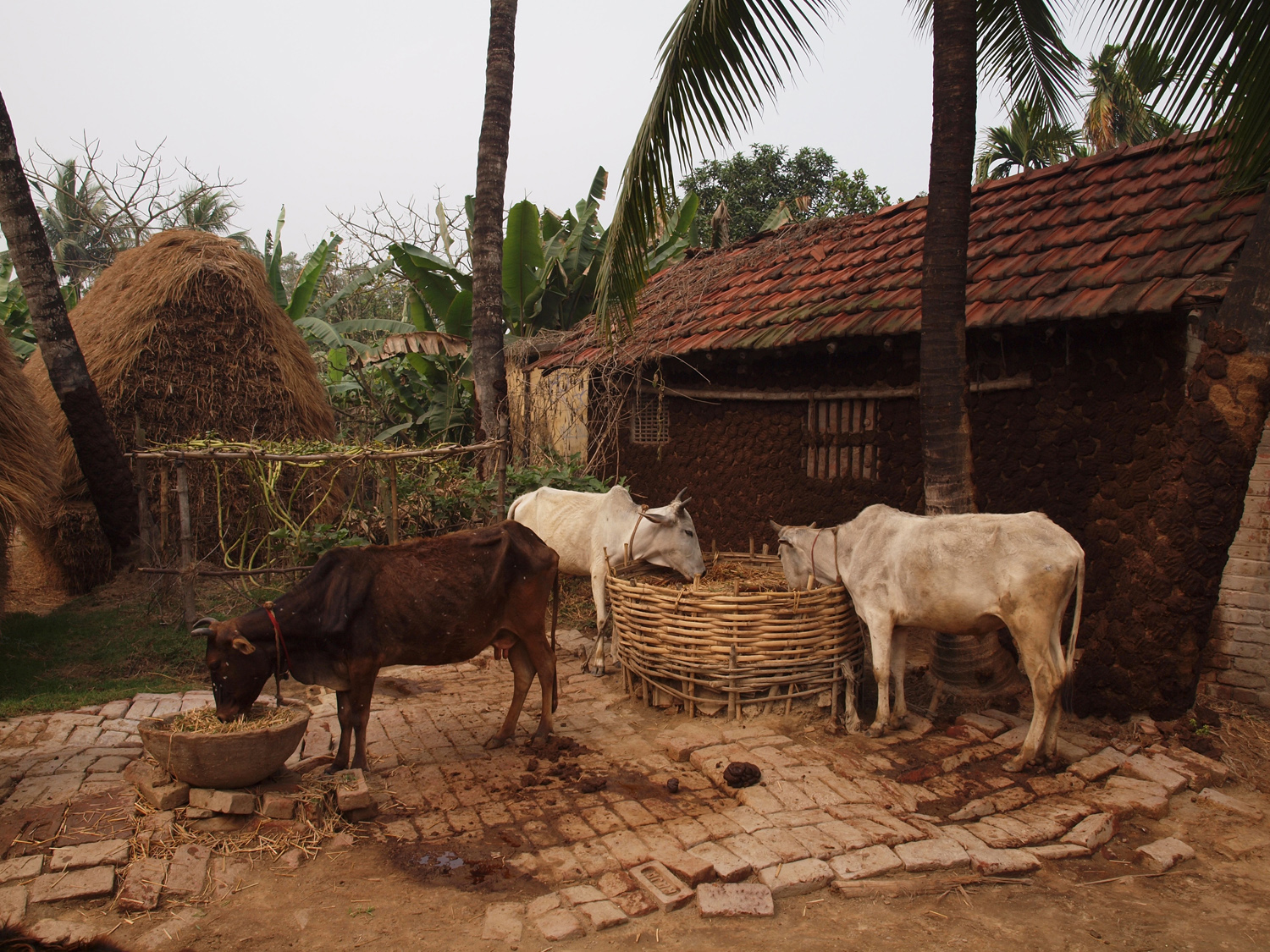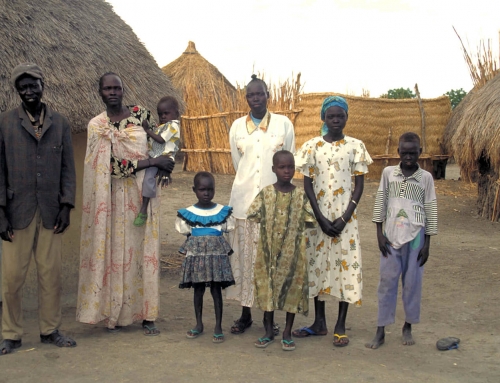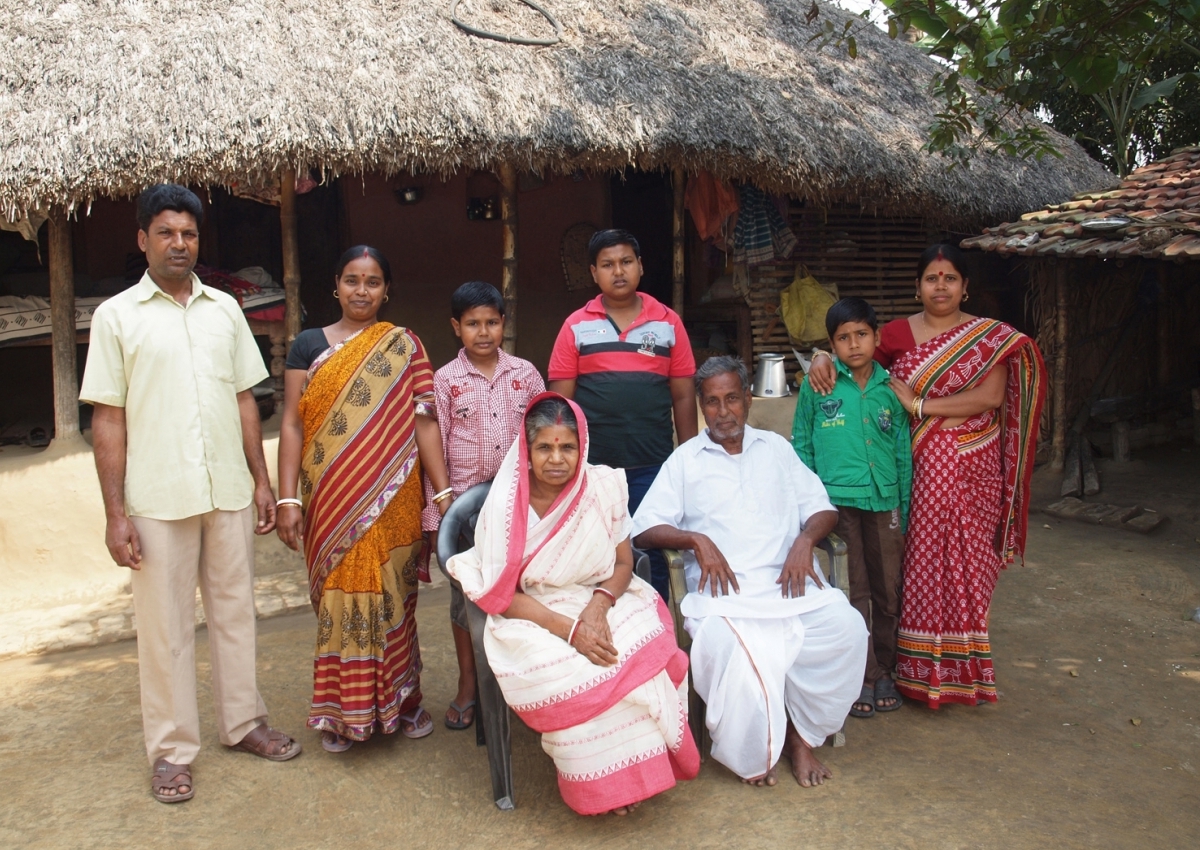
The 12th of February.
5:00 This is not the first train but the morning express between Katwa and Kalyna wants to say it loud and clear: ” Get out of the way, I will not stop at your station Agradeep.” It is in a hurry to bring workers who will travel nearly six hours to and from their daily job in Kolkata, the state capital. Some say, this is better then trying to live in the city where you cannot afford a decent apartment. In the Biswas family, no one has moved. For generations, no one has gone anywhere; they have been farmers here as long as they remember.
A few more trains travelling north – south will pass before the cue for Manic to put the key into the big lock on the metal railing that protects them through the night. With daylight,comes more safety and trust.
Manic and Mucto have spicy, puffed rice before they head for work. They have just finished planting the rice and mustard seed that will be harvested a little bit each day in the next week. This morning, Manic is employed at the brick factory and Mucto on another farmer’s land where he is needed to cut some wood. The three acres they own are not enough to provide financially for the three families sharing the courtyard.
Unity and harmony
The two Biswas brother have not divided their father’s land. To share land between brothers is a solution that requires unity and harmony. Many say that most of the time, it creates conflicts in the families. For the Biswas having to leave as legacy ,the few acres to their three sons is what worries them the most. If they are left with with one acre each, it will mean assured poverty. What they all agree to, is that the boys will not have that has the only choice in the future. They will be educated.
Their wives, Nayan and Phelan, have both finished their Grade 10 and are more educated then their husbands. They are the ones guiding the boys in their education. Morning and night, Nayan’s room is a place of study. They all share the desire for a better future and it is with this energy that they all begin their daily tasks. The students gather their schoolbooks, are joined by girl friend and neighbor and are ready when their teacher arrived.
Old Naba has cleaned the stable and is now sitting, cutting the rice paddy to feed the livestock. Naba is focused. His move is repetitive and the sound of the grass sliding on the curved knife is the yard’s morning mantra. His legs are stretched, his hurting knees relaxed, Naba reflects contentment.
Near the yard’s latrine and water pump, Subadra piles dry rice paddy and starts a fire, and pours water in the rectangular pan that sits over a small mud stove. When the water boils, Nayan joins her mother-in-law with the dirty clothes. Phulan boils the clothes before placing them near the water pump where the women, with strong and regular arm movements, will take turn at beating each piece on the cement floor of the washing area.
A friend comes in the yard, her young son on her left hip and brushing her teeth with her right hand. She talks a little and goes back to her home. Papaye is somewhere with friends in the village and Rakesh is copying a homework he needs to finish while Palab makes an errand for Phulan at the station, as the village of Agradeep is called. He is still the only one with a bike, is always willing and happy of the two-kilometer ride. He likes to be a part in the life of the busy crowd that gathers here from all the neighboring villages.
9:30 Phalan finishes preparing morning breakfast. “Every one eats better when it is Nayan who is at the stove” says her sister-in-law. Nayan is there to help in preparing the vegetables and doing the other tasks.

